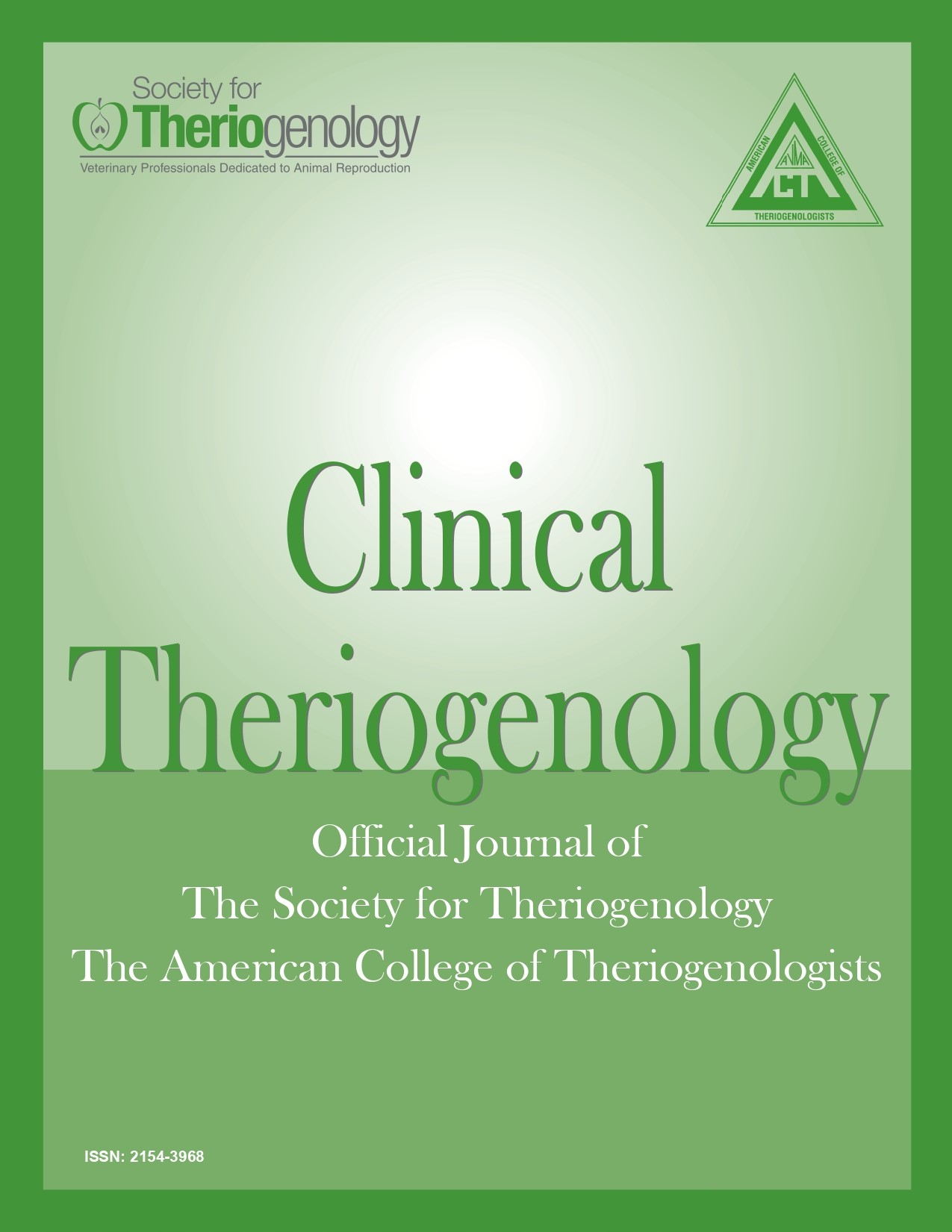Effect Of Beef Cow Temperament At Mid-Gestation On Reproductive Performance
Abstract
Temperament is defined by reaction characteristics in response to human handling. An excitable temperament has proven to have detrimental effects on production and reproduction traits. The objective of this study was to evaluate the effect of temperament at mid-gestation on reproductive performance of beef cows. Angus and Angus cross beef cows (n=l325) from seven locations were included in this study. Cows were grouped with bulls with satisfactory breeding potential and free of venereal disease at bull to cow ratios of 1 :25 to 1 :30. All cows were given a body condition score (BCS; I-emaciated; 9-obese) and chute-exit and gait score (1 = slow exit, walk; calm temperament; 2 = jump, trot or run; excitable temperament) at pregnancy diagnosis six months after the beginning of the breeding season. Pregnancy status and stage of gestation were determined by per-rectal palpation and/or by ultrasonography. Cows that were excited had a lower breeding season pregnancy rate compared to calm cows (88.6% [599/694] vs. 92.7% [585/631]; P<0.0001). Cows with excitable temperament took 15 more days to become pregnant in the 85 day breeding season compared to calm cows (median days to pregnancy: 30 (20, 60) vs. 15 (10, 40) days; P<0.0001). In conclusion, the modified 2-point chute exit-gait scoring method can be used to identify cattle with calm temperaments at mid-gestation. Even though assessing temperament before breeding season makes sense, the producers still can make culling decisions at mid-gestation. Cows with calm temperaments in a beef operation will have a higher pregnancy rate and take less time to become pregnant during the breeding season. Reducing the proportion of excited cows could improve reproductive performance of the beef operation.
Downloads

This work is licensed under a Creative Commons Attribution-NonCommercial 4.0 International License.
Authors retain copyright of their work, with first publication rights granted to Clinical Theriogenology. Read more about copyright and licensing here.





